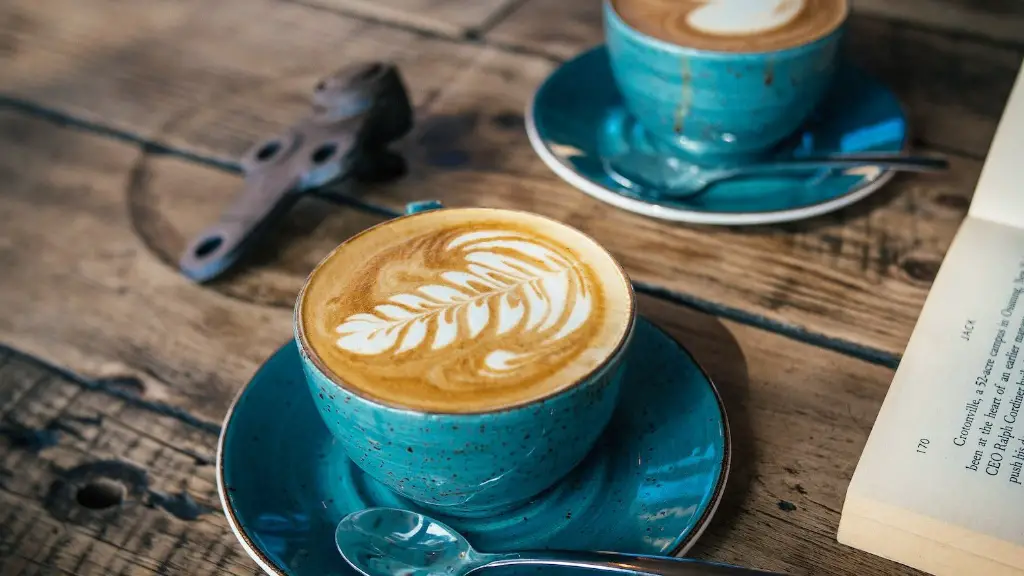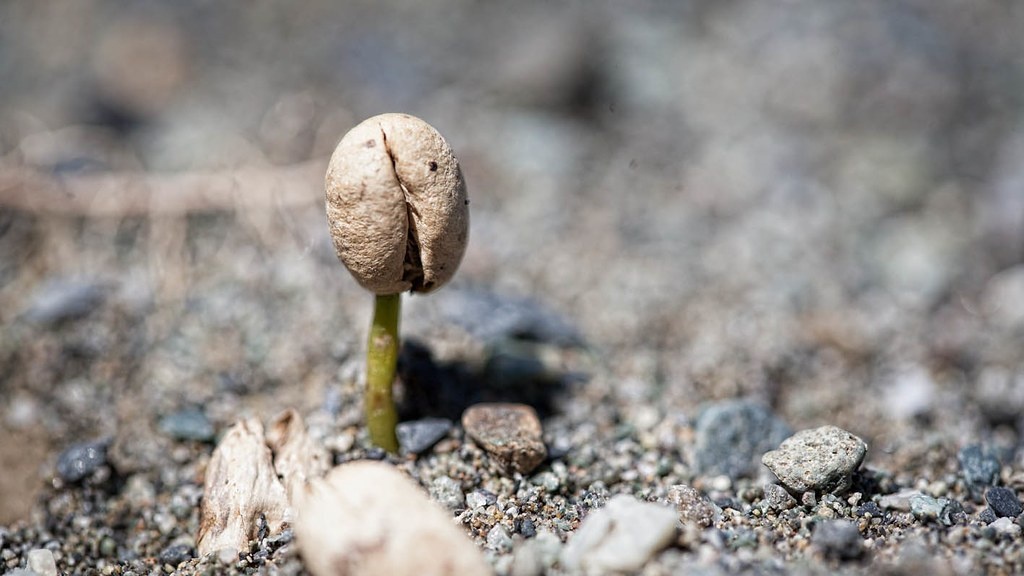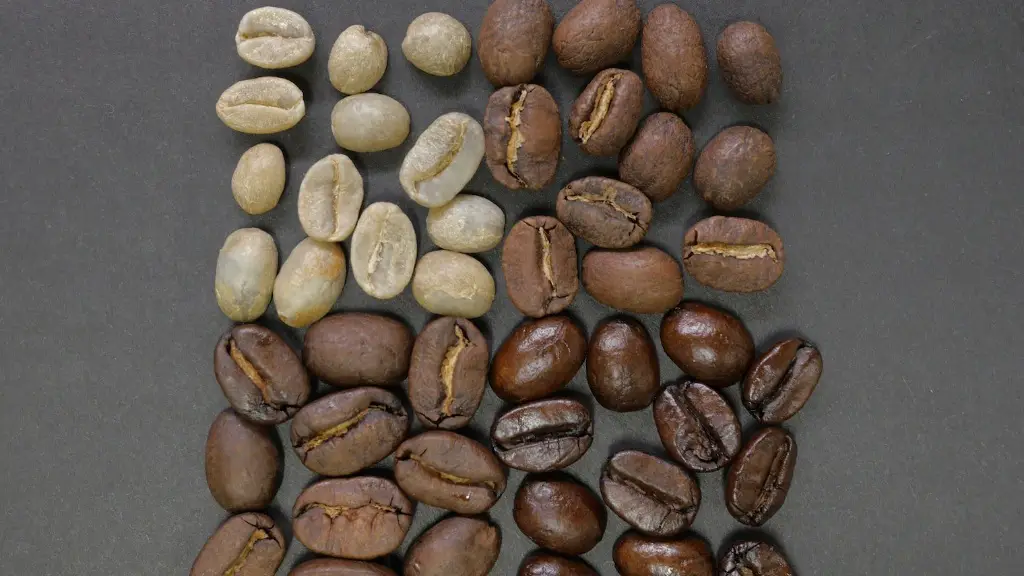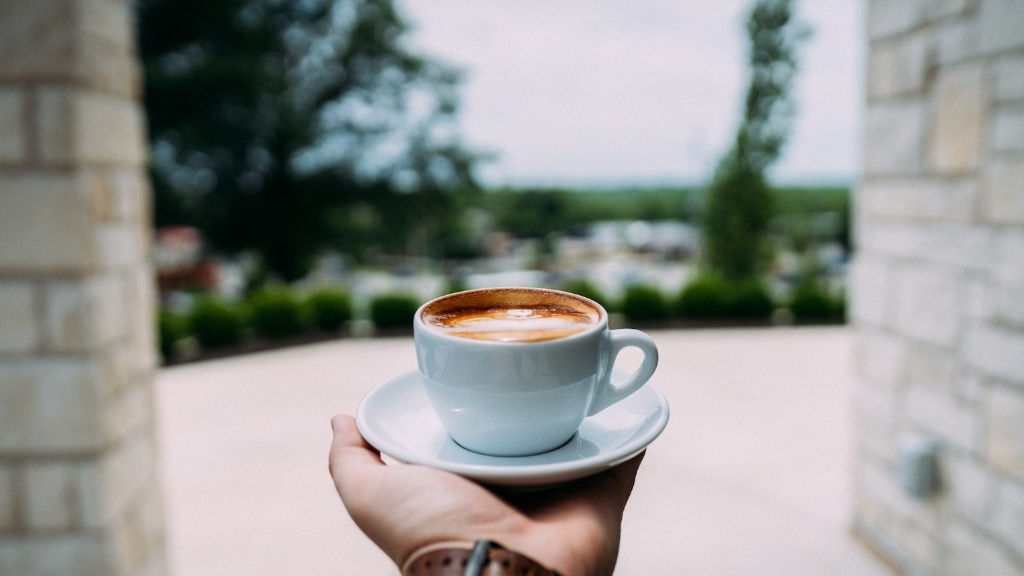Coffee has become a prominent part of the daily lives of many people. It is the perfect companion for a morning commute, a midday pick-me-up, and a late-night stimulant; however, coffee can also interfere with our sleep quality. If you are wondering how long before bed should you not drink coffee, there are a few clear rules which should be taken into consideration.
Firstly, the amount of caffeine in coffee will determine how long before bed we should abstain from drinking it. A standard mug of coffee contains about 95 milligrams of caffeine, but this can vary drastically depending on the type of coffee and how it was brewed. For example, a single shot of espresso contains roughly 64 milligrams of caffeine and a single serving of decaffeinated coffee contains no more than 2 or 3 milligrams of caffeine.
It takes anywhere from 15 minutes to 7 hours for our bodies to process the caffeine we consume; therefore, it is preferable to have your last cup of coffee before 7 hours prior to going to bed. Most experts agree that having your last cup of coffee 8 or 9 hours prior to bedtime is ideal.
Moreover, our individual sensitivity to caffeine can greatly impact how long before bed we should be abstaining from drinking coffee. Everyone’s bodies process and react to caffeine differently; for some, drinking coffee late in the evening can be especially disruptive to sleep.
On the other hand, there are some people who may be able to drink coffee closer to going to bed and not be affected in the slightest. It is important to take into account how each cup of coffee makes us feel in order to determine how long it should be avoided prior to bed.
It is also important to acknowledge how our lifestyles may impact our safety when it comes to drinking coffee before bed. For instance, if you have a regular job which involves long days of physical or cognitive labor, you may need an extra cup of coffee to make it through the day. However, if you are engaging in activities where you absolutely need to get a good night’s sleep it is always a good idea to take precautions and avoid coffee late in the day.
Diet And Health
If you are looking to have better sleep and reduce the impact of caffeine on your body, it is always a good idea to get your nutrients from the right types of food. Eating a balanced diet and drinking plenty of water throughout the day will naturally give your body the energy it needs and reduce the need for excessive stimulants.
It is also a good idea to get regular exercise and avoid consuming large amounts of alcohol and sugary drinks close to when you are planning to go to bed. A healthy lifestyle and diet can certainly help to promote better sleep quality and reduce the need for stimulants such as caffeine.
Quality Of Sleep
Sleep is incredibly important to our overall health and wellbeing, and this is all the more reason why you should be aware of how much and how often you are drinking coffee close to bedtime. If you notice that drinking coffee late in the day is disrupting your sleep, it may be a good idea to reduce your intake or opt for decaffeinated options.
Other factors such as environmental noise, temperature, and type of bed can also impact sleep quality, and it is important to consider all of these things when adapting your sleeping habits. Furthermore, if you are struggling to get deep and restorative sleep, it might be worth looking into relaxation techniques such as yoga and meditation.
Alternative Natural Stimulants
If you are looking for a boost of energy late in the day but you want to avoid coffee, there are some natural stimulants which can help provide a boost of energy without disrupting your sleep. Some of the best natural stimulants include green tea, raw cocoa, and guarana. Although these contain a small amount of caffeine, it is significantly less than coffee and should not disrupt your sleep.
Additionally, some adaptogenic herbs such as ashwagandha, rhodiola rosea, and eleuthero are natural stimulants which can help you naturally increase your energy levels and productivity late in the day. While these herbs are stimulants, they are also renowned for their calming and calming effects and can be a great addition to your diet.
Supplements
Supplements can be another great way to increase energy and productivity without the negative effects of coffee. A combination of B-vitamins, magnesium, and omega-3 fatty acids can help to naturally increase your energy levels, focus, and performance. These supplements are also beneficial for brain health and can improve the quality of your sleep.
On the other hand, some stimulant supplements such as caffeine pills and energy drinks can be dangerous if overused or taken late in the day; therefore, it is important to read the labels and be aware of the ingredients before consuming them.
Timing Of Consumption
The best way to ensure you are drinking coffee at a safe time is by staying aware of your individual sensitivity levels to caffeine and being aware of your lifestyle and activities. Generally, if you are aware of when you need a boost of energy and plan accordingly, it should not be difficult to get the most out of your coffee without compromising your sleep.
Additionally, it is important to note that our bodies take different amounts of time to process caffeine; therefore, the timing of our consumption can also dictate how close to bedtime we should be abstaining from drinking coffee.
Nature Of Coffee
Coffee is mostly known for its stimulatory effects and caffeine content, but it is also packed with a variety of other antioxidants, minerals, and vitamins which can provide numerous health benefits. Some of these include improved digestive system health, improved heart health, anti-inflammatory effects, and improved brain health; however, coffee can also disrupt our sleep if we abuse it.
It is important to understand how coffee affects our bodies and how to best use it in order to optimize our health. Drinking coffee in moderation is always best, and it is important to take into account how late it is when we should start avoiding it in order to optimize our sleep and recharge our bodies.
Impact On Wellness
Sleep is incredibly important when it comes to obtaining overall health and wellbeing. Our bodies can only operate correctly if we have had enough rest and are fully recharged; therefore, it is vital that we get the amount of sleep our bodies need. This is why it is important to understand how long before bed we should abstain from drinking coffee.
Furthermore, it is important to acknowledge the benefits and risks associated with drinking coffee. While it does come with potential health benefits, it is important to understand how our individual sensitivities to caffeine can impact a good night’s sleep.
Conclusion
Drinking coffee may provide us with a temporary boost of energy and productivity; however, it is important to understand how long before bed we should stop drinking it in order to ensure we get the rest we need. Coffee can be a great addition to our diet, but it is also important to recognize all of the potential risks and be aware of how it affects us individually. Being aware of our individual situations and taking all of the necessary precautions will help us to optimize our health and wellbeing without compromising our sleep.





